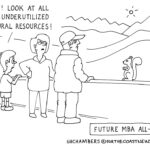The U.S. Postal Service can be justifiably criticized for a lot of things. One is the 2011 decision to begin allowing images of live people on United States stamps.
This relatively new policy puts into bas relief some of what’s happened in California over the last 18 months, when a lot of things named for persons living or dead have been renamed or removed because the honorees had feet of clay.
It’s not merely hazardous to name things for live people, but also to name them for the dead.
That’s because true saints are rarities in America and everywhere else. Junipero Serra, a leader of the Spanish mission era in early California history, is a one example.
Back in the 1990s, while he was beatified and sainthood awaited, Pope John Paul, himself now a saint, visited San Francisco and speechified on Serra’s virtues.
Protesting throngs closed down San Francisco’s busy Geary Street as they objected to sainthood for Serra, who the crowds believed helped enslave myriad Native Americans, orchestrating their forced labor for missions, their farms and other enterprises.
He achieved sainthood anyway. But in the last few months, as more history emerged and Native Americans and Latinos became more vocal and political, several statues of Serra have been pulled down.
High schools and streets still bear his name, but it’s a good bet some won’t much longer.
Then there was the Richard M. Nixon Freeway (California 90) between the San Diego Freeway (I-405) and Marina del Rey in Los Angeles County. Named for the then-President when it opened in the early 1970s, this road quickly lost its name when Nixon’s role in the Watergate scandal emerged.
This happens in academe, too.
Until recently, many buildings and other items on the Stanford University campus were named for founding school President David Starr Jordan.
Jordan’s place in history is assured, but not his name on university properties.
Once it became widely known he was an early advocate of eugenics, a plan to “improve” the human race by letting some people reproduce while sterilizing others, Jordan’s name quickly came off most places it once adorned.
The same for 1920s-1940s USC President Rufus Von KleinSmid, who built his campus and its athletic programs into formidable forces.
Also an advocate of eugenics, a theory that became a key part of Nazi Germany’s efforts to “purify” its populace, Von KleinSmid’s name has been removed from most of its former perches.
And what about Serranus Hastings, who gave his name and plenty of money to San Francisco’s Hastings College of the Law, alma mater of Vice President Kamala Harris? That name won’t last much longer, now that it’s become clear Hastings organized a set of Native American massacres, complete with bounties.
Now comes Mark Ridley-Thomas, a Los Angeles city councilman and termed-out former county supervisor under indictment for allegedly conspiring with a USC dean to get his son Sebastian admitted as a scholarship student and named a professor.
In return, millions of dollars in county contracts were supposedly funneled to USC. A bridge now carries his name, but for how long?
And in far Northern California, the gorgeous Patrick’s Point State Park has reacquired its Yurok Indian name of Sue-meg State Park. Why? The point’s former namesake, 1850s-era settler Patrick Beegan, stands accused of murdering multiple Yurok tribesmen.
Put all this together and the hazards of naming things for prominent people becomes very clear, even if they helped create many projects and institutions.
The realization is fast dawning that we usually don’t know enough about individuals, living or dead, prominent or not, to trust they are worthy of honors they sometimes bestow on themselves or are awarded by others.
It might have made a nice retirement gift for David Starr Jordan to have his name affixed to several Stanford sites, but decades later, this became an embarrassment for the university.
So let’s begin a new policy as soon as possible: Give parks and buildings and freeways names descriptive of their location and nature, not someone’s name.
For if there’s one thing we know about human beings, it is that none of us is perfect.
Email Thomas Elias at [email protected].



